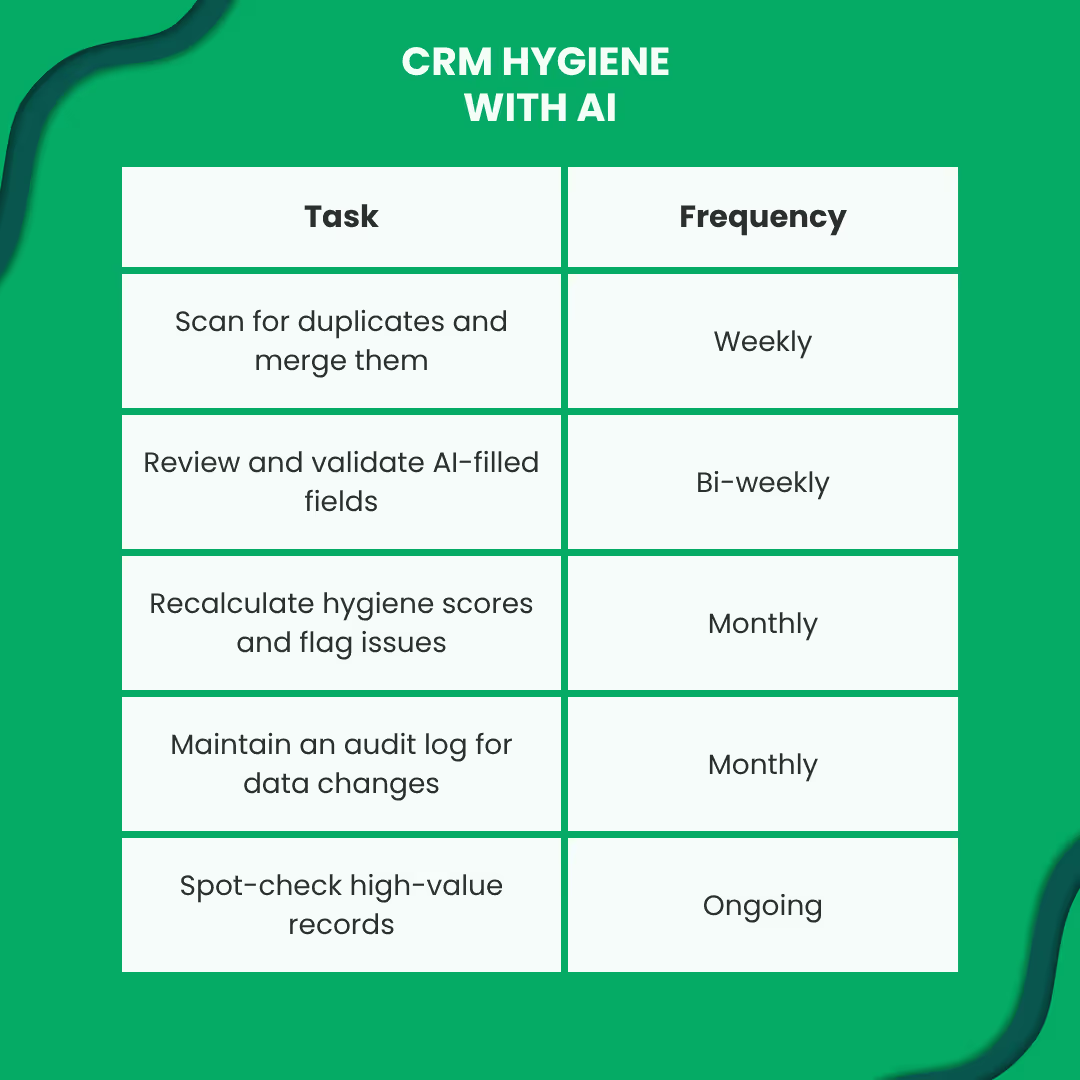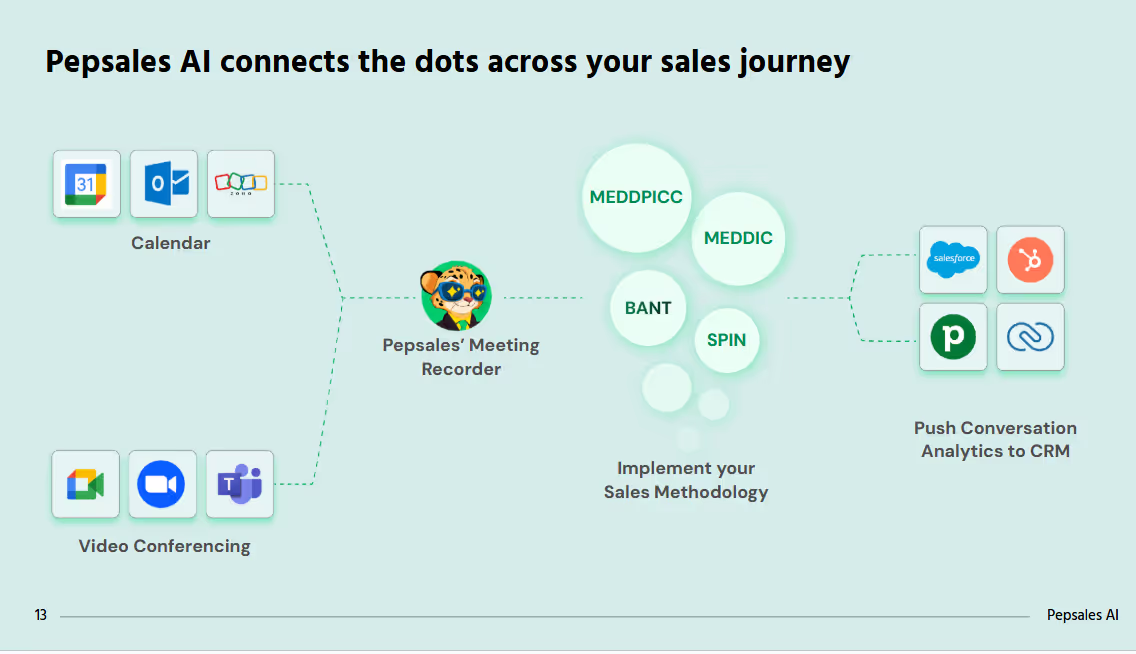CRM hygiene AI is revolutionizing how sales teams manage their data, making it cleaner, more accurate, and continuously reliable. This guide breaks down what CRM hygiene is, why it often fails, how AI improves it, how to maintain it, and what to avoid. You’ll also get a practical checklist to keep your CRM ready for action.
1. Introduction
CRM hygiene refers to the ongoing practice of keeping customer relationship data clean, complete, and up to date. It matters because stagnant or faulty data leads to lost deals, wasted effort, and skewed reporting.
AI is transforming CRM hygiene by automating routine tasks. With AI-powered tools, you can identify duplicates, fill in missing fields, update contact information proactively, and enforce data quality without needing manual intervention.
2. What Is CRM Hygiene and Why It Often Fails
Some common CRM hygiene problems include:
- Duplicate records that create confusion and duplicate outreach
- Out-of-date contacts that block access to the right buyers
- Missing or inconsistent data that harms reporting and segmentation
3. How AI Can Improve CRM Hygiene
AI can dramatically improve data integrity through:
- AI-powered deduplication
Algorithms scan for similar records and merge duplicates automatically. - Auto-fill of missing fields
AI pulls contact data, company details, and job titles from email signatures, call transcripts, and external sources. - Predictive contact updates
AI tools flag when a contact changes roles or companies so teams can update records proactively.
These tools turn manual CRM cleanup into intelligent, continuous maintenance. This is the core value of CRM hygiene AI.
4. Tips to Maintain CRM Hygiene with AI
- Schedule routine audits
Run weekly or monthly scans for duplicates, blank fields, and inconsistencies. - Embed AI into daily workflows
Use AI copilots that log call data, update fields, and summarize key deal insights directly into your CRM. - Use data hygiene scoring
Assign records a hygiene score based on field completeness, freshness, and structure. - Choose the right tools for your tech stack
Some helpful CRM hygiene tools include:- Pepsales AI (automated call summaries, note logging, sales methodology mapping)
- HubSpot AI Assistant (data enrichment, duplicate detection)
- Salesforce Einstein (predictive updates and automation)
- Zoho AI and Pipedrive AI (data validation and cleanup assistance)
- Pepsales AI (automated call summaries, note logging, sales methodology mapping)
5. Pitfalls to Watch Out For
While AI can streamline CRM hygiene, it comes with risks:
- Over-reliance on automation
AI still needs human oversight. Always review changes before committing bulk updates. - Misinterpretation of unstructured data
AI tools can occasionally misread call notes or emails, leading to wrong field inputs. - Privacy and compliance issues
Make sure your AI tools are compliant with GDPR, CCPA, and internal data security policies.
6. Checklist for Ongoing CRM Hygiene with AI

7. : See How Pepsales AI Makes CRM Hygiene Easy
Pepsales AI is built to support data hygiene from the inside out. It improves your CRM quality without requiring your team to change behavior.
Here’s how it works:
- Summarizes every sales call and logs it directly to CRM
- Tags missing fields like timeline, budget, or decision-makers
- Identifies gaps in MEDDIC, SPIN, or your custom qualification framework
- Notifies you when CRM data is missing or misaligned

Final Thoughts
AI is not a replacement for data discipline. It is a multiplier. When paired with a well-designed process, AI enables teams to clean, enrich, and maintain CRM records effortlessly.
If you’re ready to streamline your workflows and keep your CRM sales-ready, book a demo with Pepsales AI to see how real-time insights and intelligent logging can elevate your sales execution.
CRM hygiene doesn’t have to be tedious. With the right tools, you can build a CRM that’s always clean, complete, and conversion-ready.









.avif)
.avif)
.avif)
